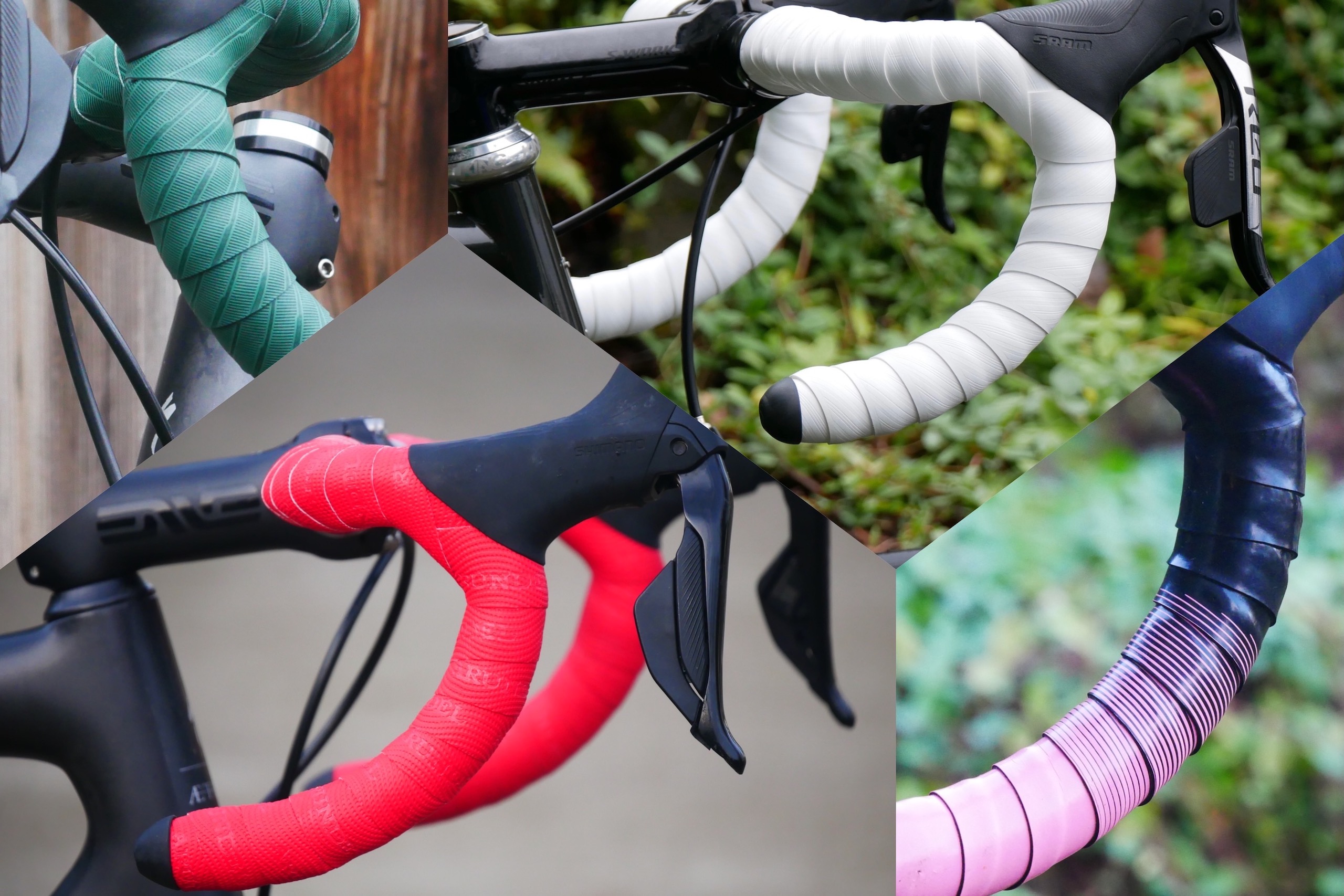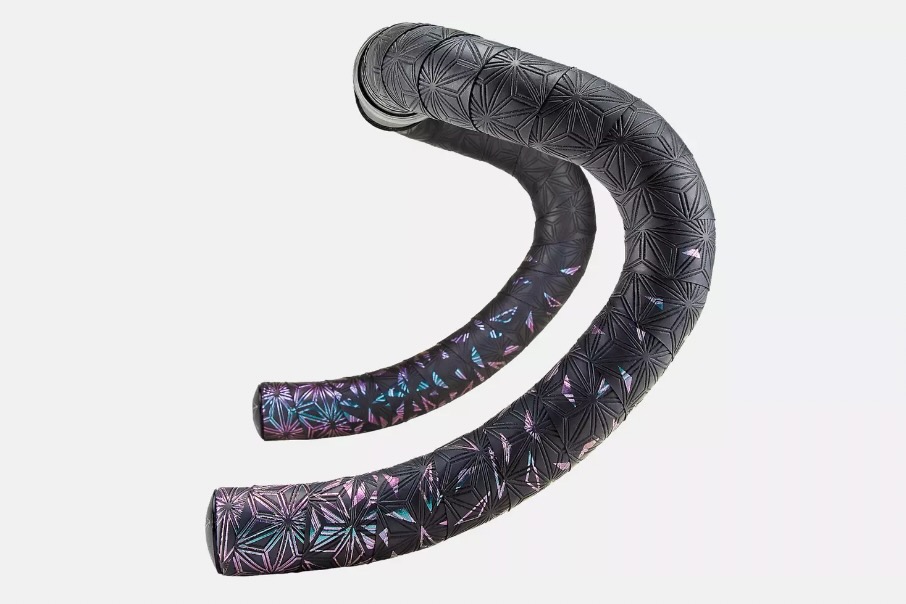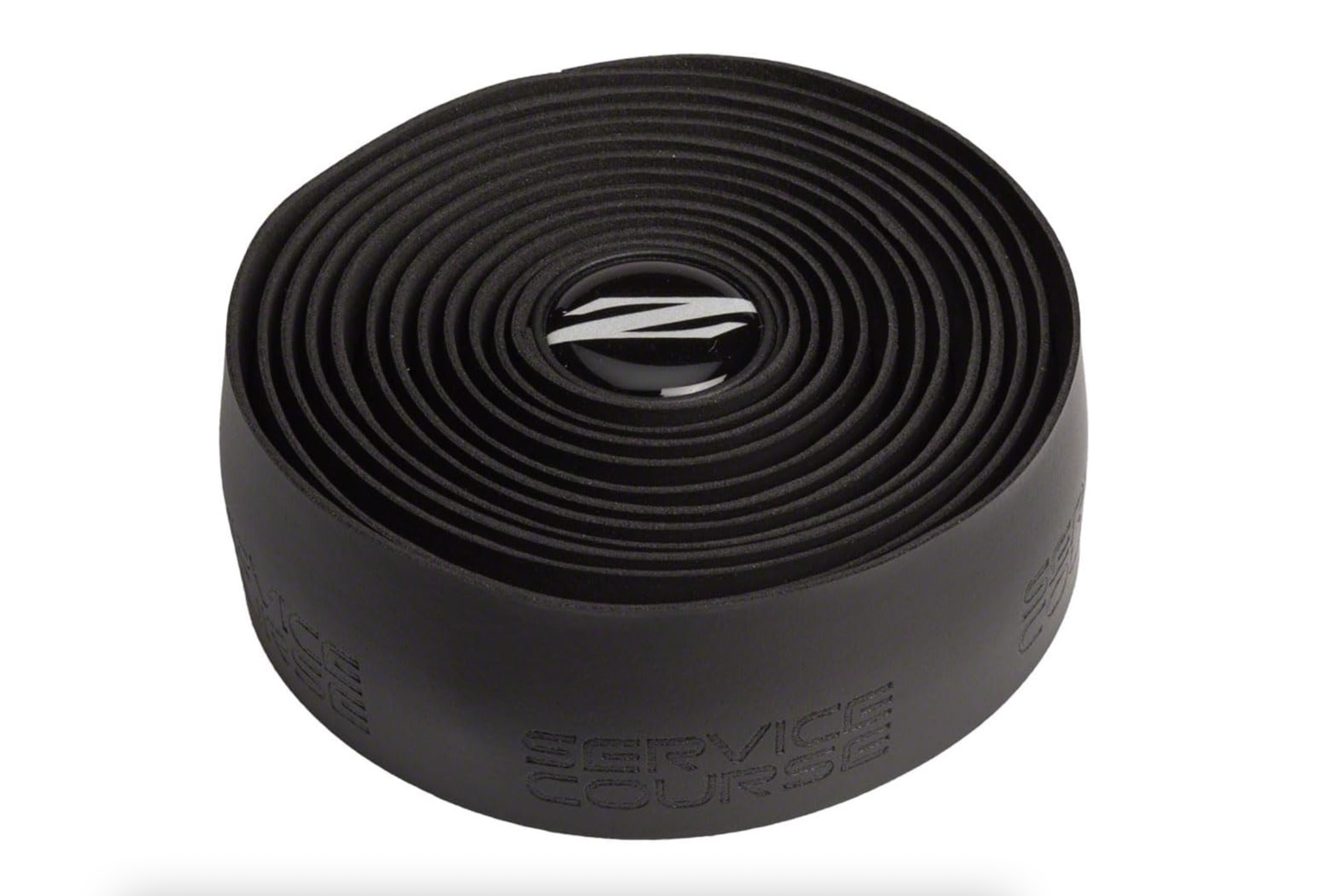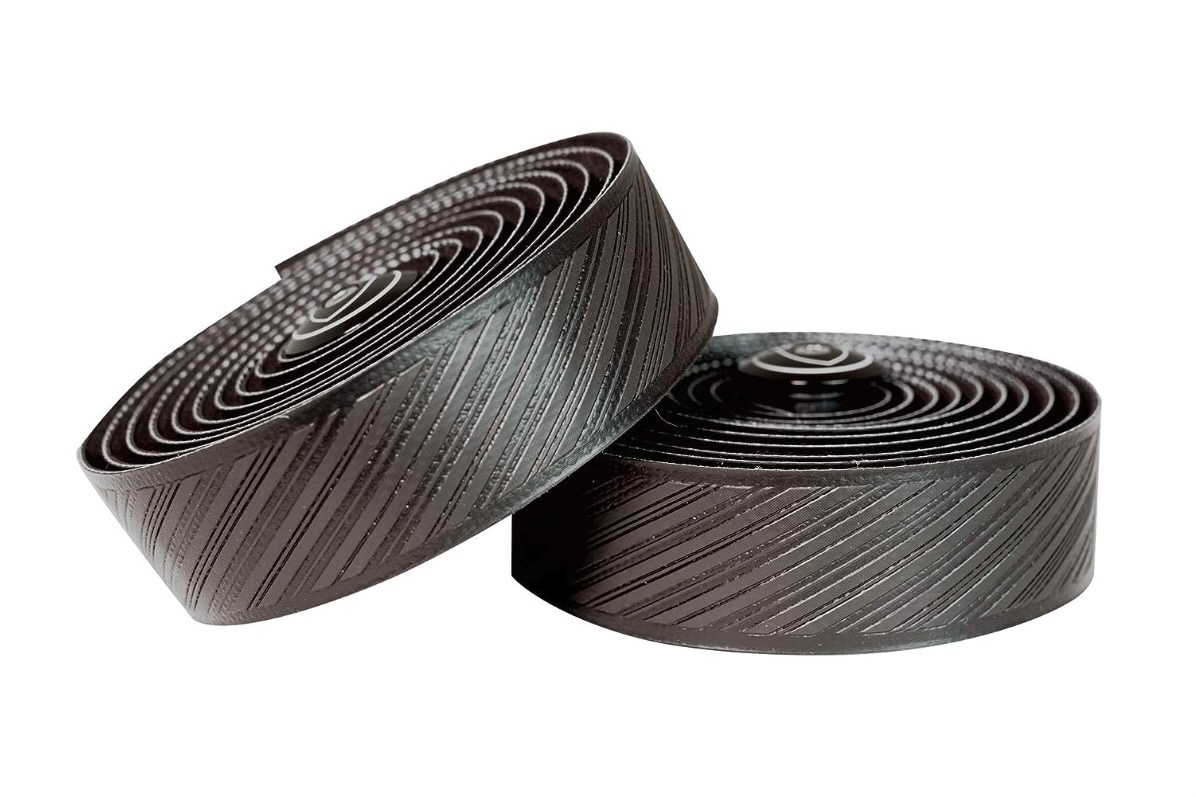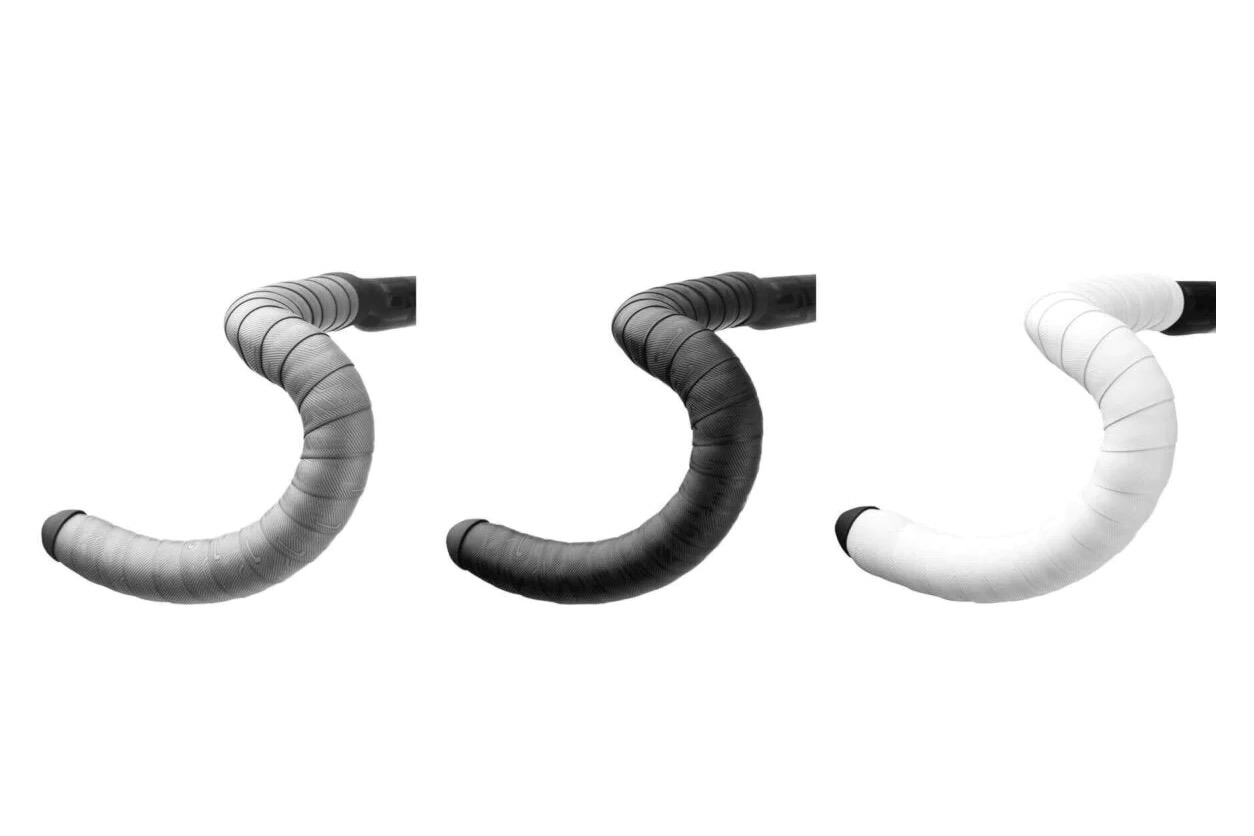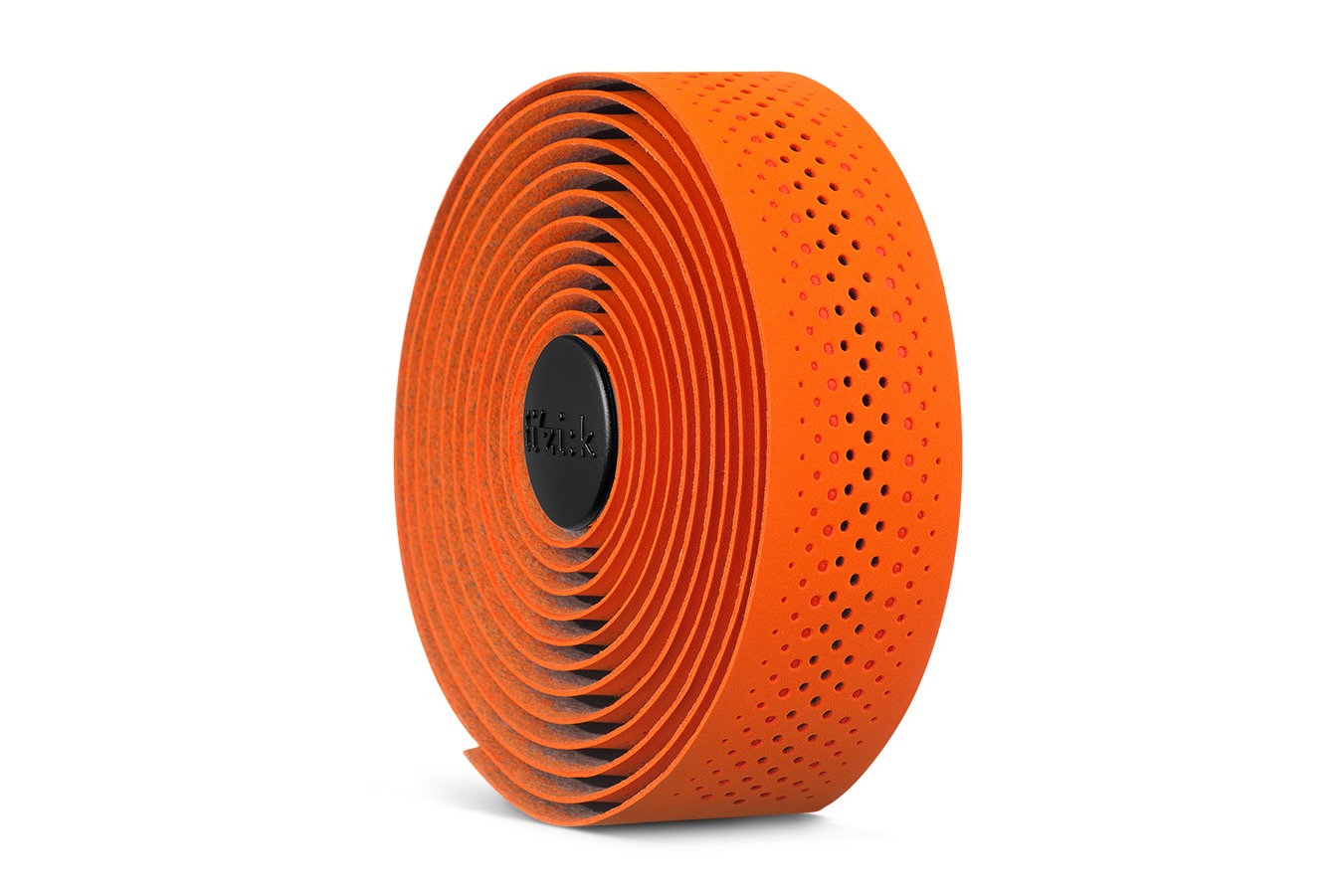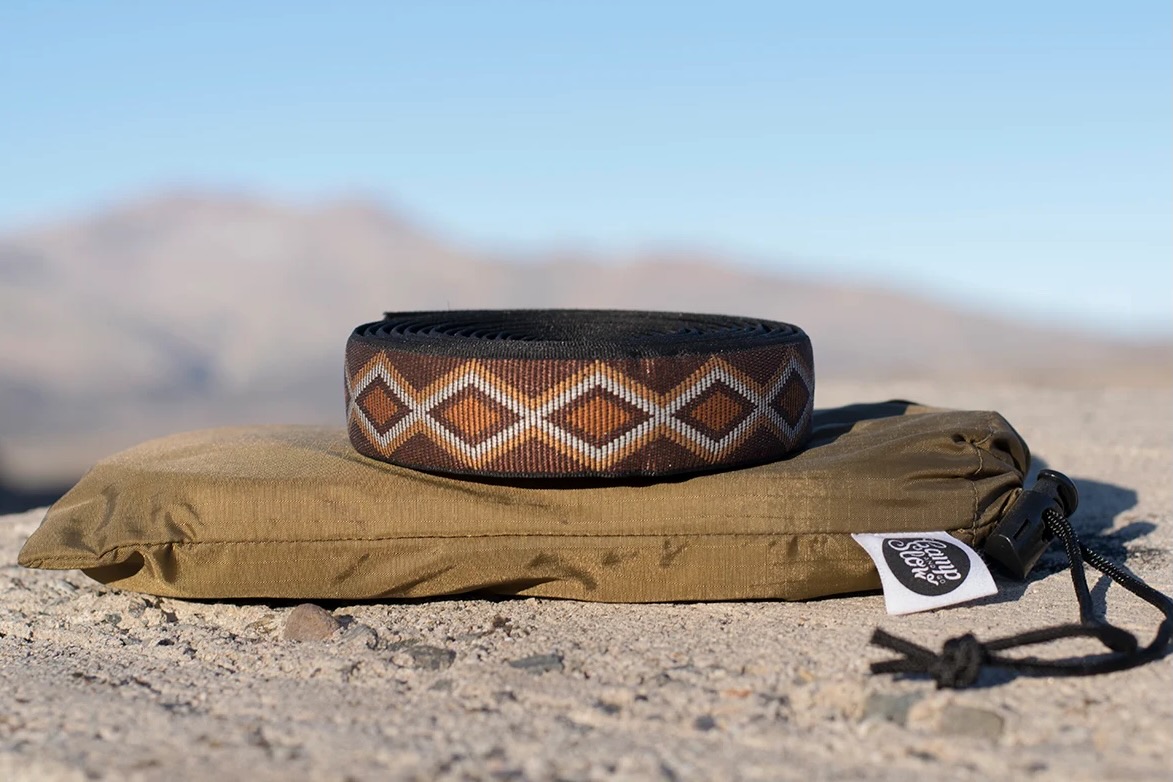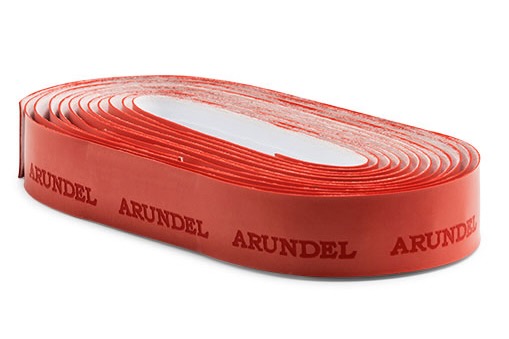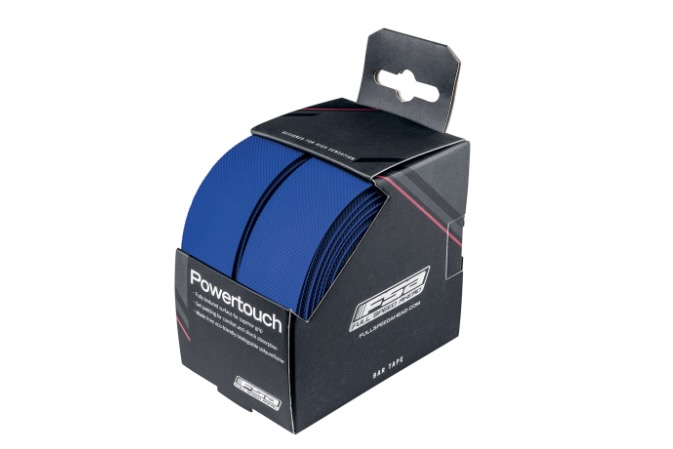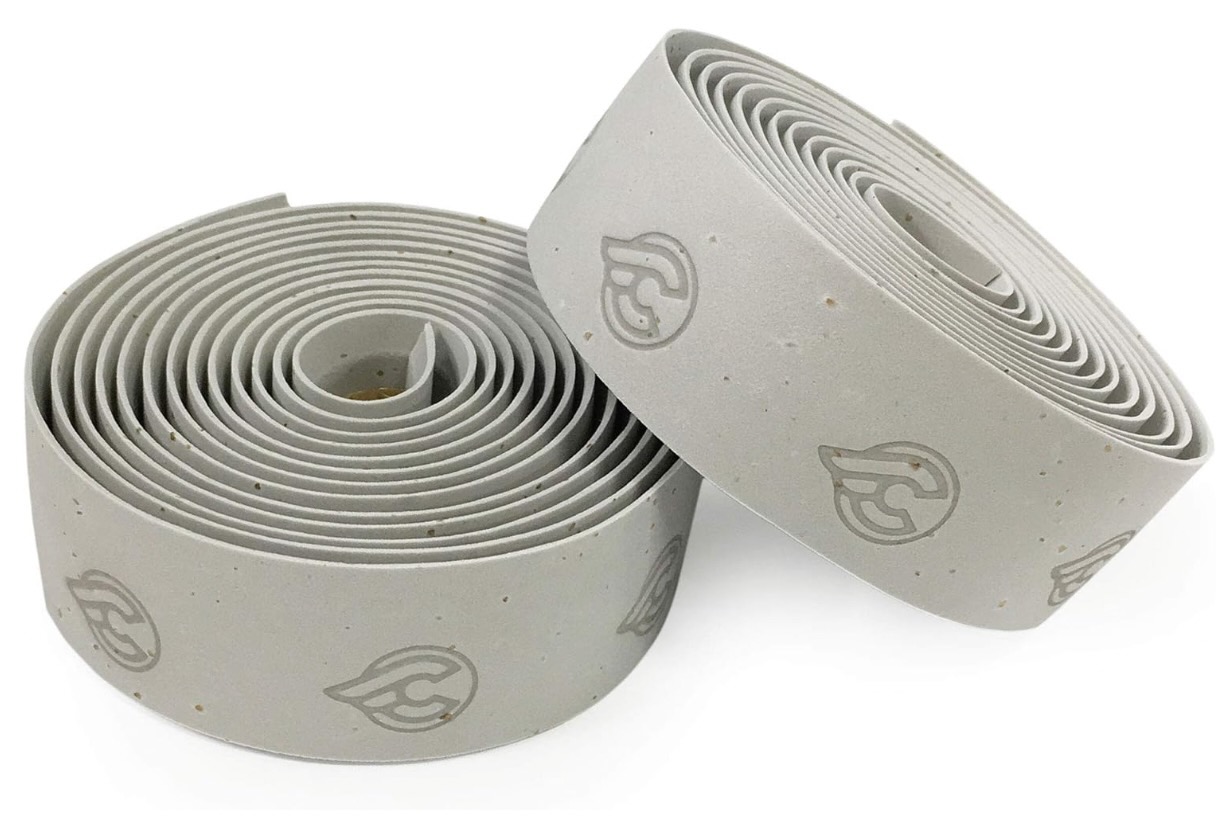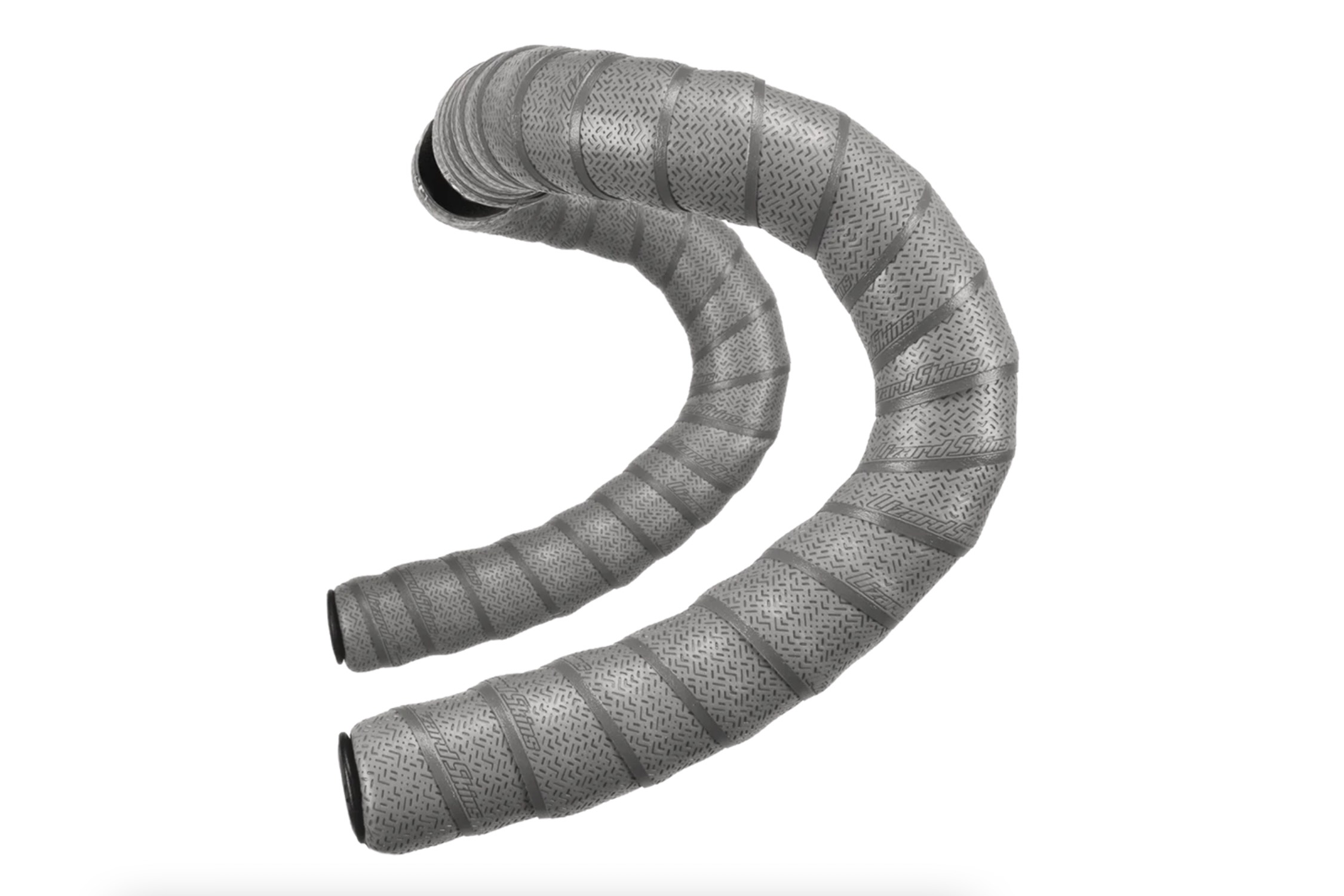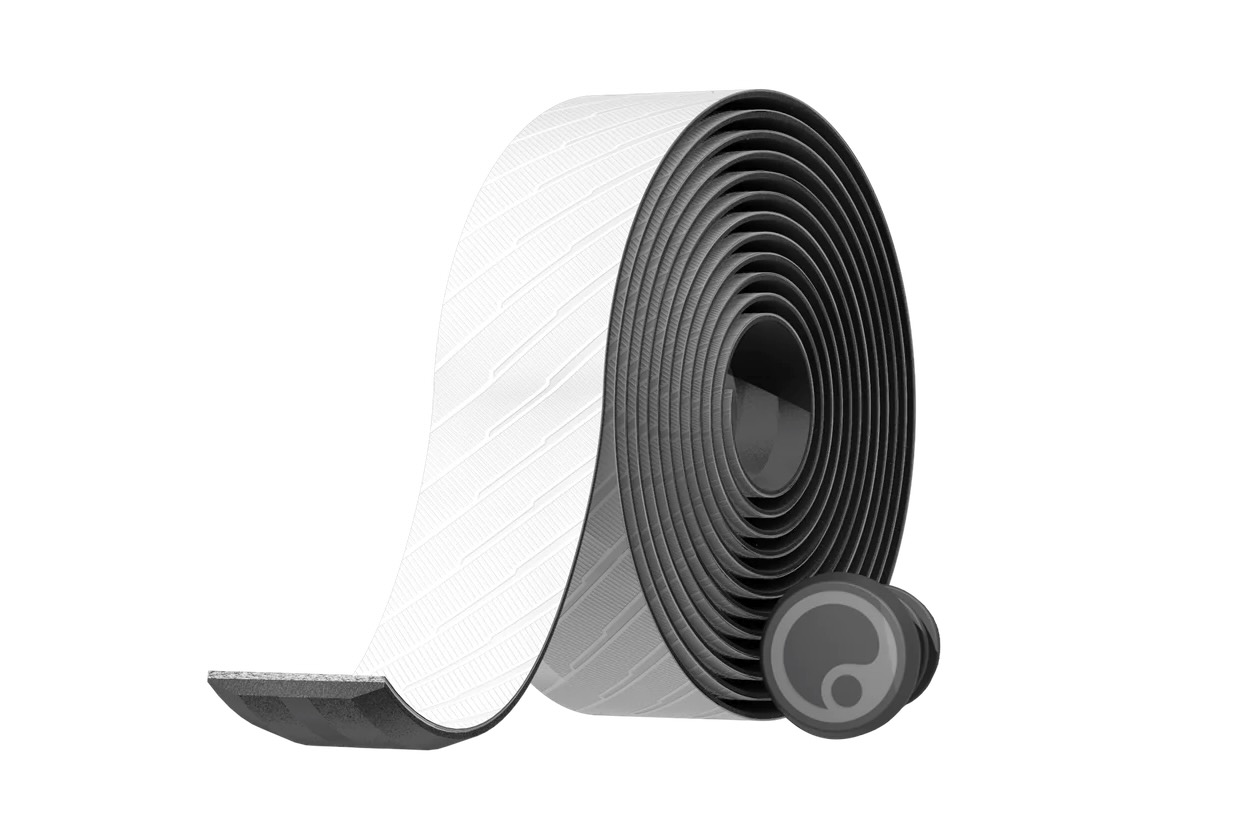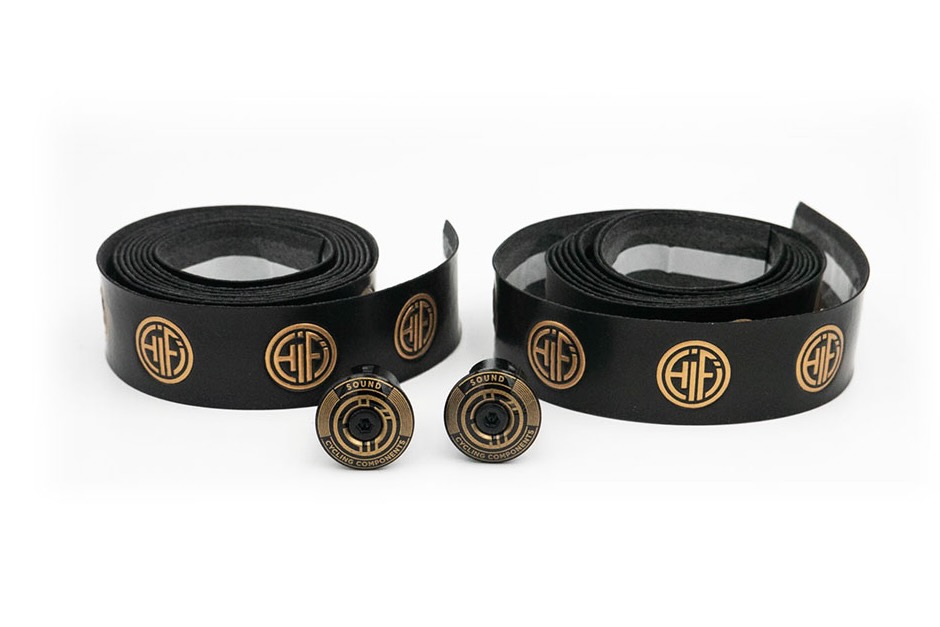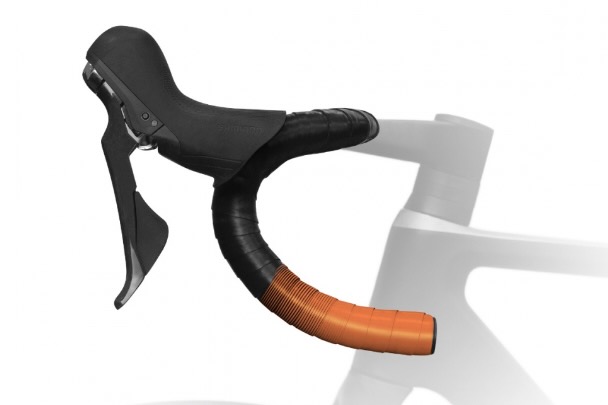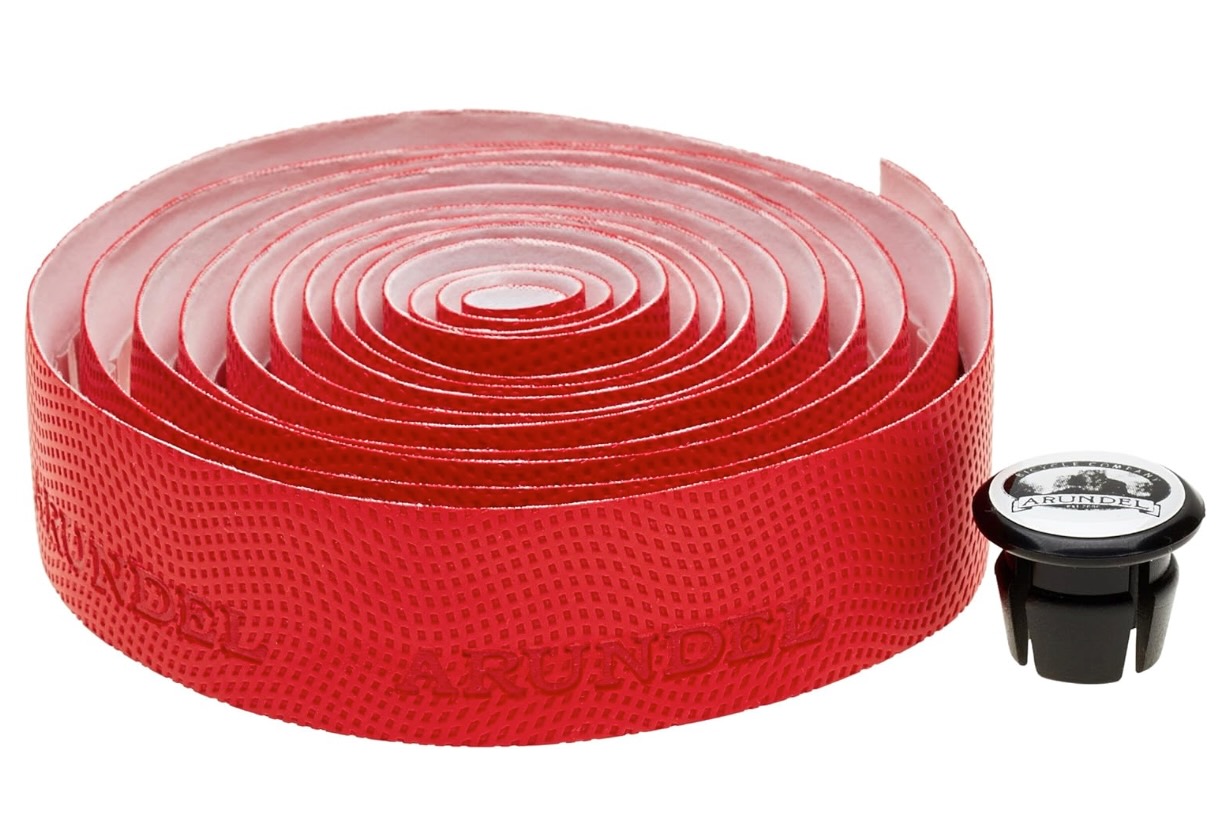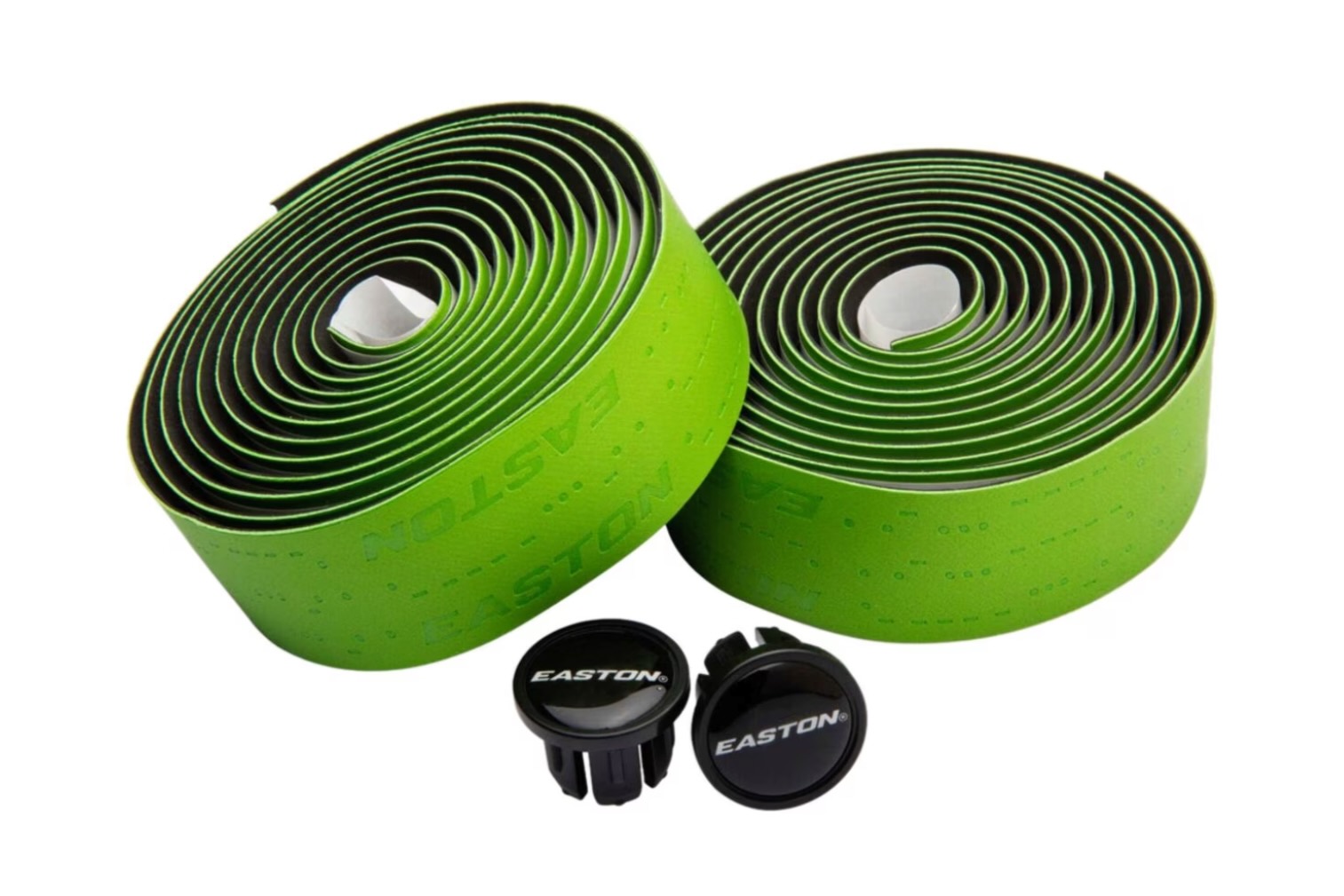Handlebar Tape is an often-overlooked upgrade that can greatly improve your relationship with your bike. The tape on your handlebar is quite literally where your hands connect to the bars, serving as a critical contact point between you and your machine and one that can greatly impact your comfort and control.
Most bikes’ original handlebar tape is chosen for its low cost, but a well-chosen and high-quality roll will maximize control and comfort while refreshing your bike’s appearance and amplifying its style. While it won’t transform your riding abilities, the right tape can improve performance by providing the desired grip and vibration-dampening characteristics. And like anything else in cycling, handlebar tape comes in a vast array of materials, constructions, thicknesses, surface textures, prices, and color/pattern options to suit varying needs and preferences.
For most riders, once they find a tape they like, they tend to stick to it, pun intended. That said, if it’s been a while since you tried something new, there may be something better that utilizes more advanced materials and offers a nicer feel. But with hundreds of options to choose from, finding the best handlebar tape can be a challenge. To help, we gathered 16 of the best handlebar tapes on the market to test and compare. Check out our top recommendations below.
Editor’s note: We updated our handlebar tape buyer’s guide on September 26, 2025, with the addition of the Ergon BT Gravel tape, our top pick for dedicated gravel riders.
The Best Handlebar Tape of 2026
Supacaz Super Sticky Kush Star Fade
- MSRP: $45
- Material: Material: Polyurethane, Foam, Aluminum plugs
- Thickness: 3 mm
- Length per roll: 2,160 mm
- Color options: Oil Slick, Platinum, Red, Blue, Neon Pink, Neon Orange, Celeste, Neon Yellow (also comes in numerous "Classic" and "Galaxy" color options)
Pros
- Excellent grip in all weather conditions
- Subtly stylish
- Classy bolt-on bar end plugs included
- Easy to re-wrap
- Can usually be found for less than MSRP
Cons
- Moderately expensive
Zipp Service Course Bar Tape – Road
- MSRP: $27.00 (road) – $30.00 (CX)
- Material: Polyurethane, foam
- Thickness: 3.5 mm
- Length per roll: 1,900 mm
- Color options: Black, White, Red
Pros
- Grippy surface
- Clean, tidy appearance
- Durable
- Easy to wrap
Cons
- Be careful ordering as it comes in textured (CX) and smooth (road) finishes
- Might be a little thick for those with small hands
Silca Nastro Cuscino 2.5
- MSRP: $50
- Material: Polyurethane, EVA Foam
- Thickness: 2.5 mm (also comes in 3.75 mm)
- Length per roll: not specified
- Color options: Black, Red, Cyan Blue, Grey, Neon Pink, White
Pros
- Damps without excess bulk
- Hard-wearing
- Crash-replacement discount
Cons
- Patience is required to wrap
- Expensive
Ergon BT Gravel
- MSRP: $45
- Material: EVA Foam, Polyurethane
- Thickness: 3.5 mm
- Length per roll: 2,500 mm
- Color options: Black, Space Blue, Merlot Red, Swamp Green, Rusty Red
Pros
- Excellent damping
- Great thickness and cushioning for gravel application
- Easy to wrap
- Grippy surface/texture, even when wet
- Durable
Cons
- Moderately expensive
- Might be too thick for some riders
- Thick tape is harder to tuck into the bar ends
ENVE Handlebar Tape
- MSRP: $40
- Material: Polyurethane with vibration damping silicone backer strip
- Thickness: 3 mm
- Length per roll: 2,500 mm
- Color options: Black Grey, White
Pros
- Easy to wrap
- Cushy and grippy
- Long enough for super wide bars
Cons
- Limited color options
- Moderately expensive
Fizik Tempo Bondcush 3mm Soft
- MSRP: $45
- Material: EVA Foam, Microtex
- Thickness: 3 mm
- Length per roll: 2,350 mm (+/- 20 mm)
- Color options: Green, Red, Yellow, Black, Orange
Pros
- Uniquely pleasant feel
- Excellent performance in wet conditions
- Nice looking
Cons
- Can break down unless cleaned regularly
- Moderately expensive
Camp and Go Slow Western Rattler Bar Tape
- MSRP: $44.00
- Material: Nylon blend with 1.5mm foam backing
- Thickness: 1.9mm (measured)
- Length per roll: 3,300mm
- Color options: Western (brown) or Eastern (green) Rattler colors
Pros
- Distinctive looks
- Easy to unwrap and rewrap
- Cleans up nicely with soap and water
- Super durable
- Comes in a reusable bag
Cons
- Moderately expensive
- Doesn't come with bar plugs or finishing tape
More Great Handlebar Tapes to Wrap Your Bars
- MSRP: $28
- Material: Polyurethane, Foam
- Thickness: 3.3 mm
- Length per roll: not specified
- Color options: Black, White, Red, Blue, Pink
Pros
- Excellent grip in all weather conditions
- Beautifully tuned damping
- Classy style
- Offset logos can be exposed or hidden
Cons
- Not stretchy
- MSRP: $33
- Material: Hybrid Cork
- Thickness: 3 mm
- Length per roll: 2,000 mm
- Color options: Black, White, Pink, Red, Orange, Yellow, Green, Blue
Pros
- Grippy texture
- Excellent performance in wet conditions
- No adhesive for easy removal and re-wrappings
Cons
- None
- MSRP: $20
- Material: Natural cork, Synthetic Foam
- Thickness: not specified
- Length per roll: "fits bars up to 46 cm"
- Color options: Black, White, Blue, Denim, Yellow, Orange, Red, Grey, Light Blue, Natural, Blue Prince, Pink Jersey
Pros
- Easiest to wrap
- Affordable
- Classic looks
- Super light
Cons
- Doesn't like to lay perfectly flat
- Cork/foam can tear more easily
- MSRP: $45
- Material: Polyurethane, EVA Foam
- Thickness: 1.8 mm, 2.5 mm (tested), 3.2 mm, 4.6 mm
- Length per roll: 2,080 mm, (varies slightly by thickness)
- Color options: Jet Black, Diamond White, Cool Grey, Sky Blue, Cobalt Blue, Crimson Red, Mint Green, Neon Pink, Hyper Green, Tangerine Orange, Neon Yellow, Violet Purple, Celeste Green, Viper Yellow, Vegas Gold, Olive Green
Pros
- Easy to wrap
- Cushy and grippy
- Hard-wearing
- Multiple thickness options
- A color to match any preference
Cons
- Can feel a bit slick when wet
- More expensive
- MSRP: $42.70
- Material: EVA foam, Polyurethane
- Thickness: 2.5 mm
- Length per roll: 2,100 mm
- Color options: Black, Merlot Red, White Speed, Wilderness Green, Space Blue
Pros
- Customizable wrapping options
- Nicely damped
- Easy to wrap
Cons
- Moderately expensive
- MSRP: $35
- Material: Microtex
- Thickness: 2 mm
- Length per roll: 2,350 mm
- Color options: Solid: White, Black, Red, Celeste Bianchi, Lilia Fluo, Yellow Fluo, Pink Fluo, Orange Fluo. Bi-color: Black/Grey, Black/White, Black/Red, Black/Orange, Black/Celeste, Black/Pink, Black/Yellow
Pros
- Light
- Grippy
- Low bulk
- Easy to wrap
- Lots of colors
Cons
- Doesn't dampen much vibration
- MSRP: $29
- Material: Ventilated polyurethane, EVA foam
- Thickness: not specified
- Length per roll: 2,200 mm
- Color options: Red, Blue, Yellow, Black, Gray, White
Pros
- Natural feeling grip
- Easy to wrap
- Low bulk
- Lies flat
- Affordable
Cons
- Doesn't provide much vibration dampening
- MSRP: $30
- Material: Microfiber, anti-shock foam
- Thickness: not specified
- Length per roll: not specified
- Color options: Black, Blue, Green, Red, White, Yellow
Pros
- Grippy texture
- Durable
- Easy to wrap
- Good dampening
Cons
- Gel adhesive isn't that sticky (pro or con depending on preference)
Comparison Chart
| Handlebar Tape Model | MSRP | Thickness | Length per roll (claimed) | # of Colors |
|---|---|---|---|---|
| Supacaz Super Sticky Kush | $45 | 3 mm | 2,160 mm | Many |
| Zipp Service Course Bar tape – Road | $27 – $30 | 3.5 mm | 1,900 mm | 3 |
| Silca Nastro Cuscino 2.5 | $50 | 2.5 mm (tested), 3.75 mm | not specified | 6 |
| Ergon BT Gravel | $45 | 3.5 mm | 2,500 mm | 5 |
| ENVE Handlebar Tape | $40 | 3 mm | 2,500 mm | 3 |
| Fizik Tempo Bondcush 3mm Soft | $45 | 3 mm | 2,350 mm (+/- 20 mm) | 5 |
| Camp and Go Slow Western Rattler | $44 | 1.9 mm (measured) | 3,300 mm | 2 |
| Arundel Wraptor Wrap | $28 | 3.3 mm | not specified | 5 |
| FSA PowerTouch | $33 | 3 mm | 2,000 mm | 8 |
| Cinelli Cork Ribbon Bar Tape | $20 | Variable with stretch | “fits bars up to 46 cm” | 12 |
| Lizard Skins DSP Bar Tape | $43 – $54 | 1.8, 2.5 (tested), 3.2, 4.6 mm | 2,080 mm (varies slightly by thickness) | 16 |
| Ergon BT Allroad | $42.70 | 2.5 mm | 2,100 mm | 5 |
| HiFi Precision Premium Bar Tape | $30 | 2 mm | not specified | 1 |
| Fizik Vento Microtex Tacky | $35 | 2 mm | 2,350 mm (+/- 20 mm) | 15 |
| Arundel Gecko Grip | $29 | not specified, but relatively thin | 2,200 mm | 6 |
| Easton Microfiber Tape | $30 | not specified | not specified | 6 |
Why Should You Trust Us?
The team at Bikerumor takes cycling very seriously, and we are fortunate to get to spend lots of time riding bikes and trying different products. Spending as much time riding as we do, we’ve learned that the touchpoints on our bikes are of critical importance when it comes to our comfort. And in the case of handlebar tape, it also plays a major role in our control. As such, we’re always looking for and testing out the best products that can enhance our experience and improve our performance on the bike, handlebar tape included. And, this isn’t a list we’ve just thrown together; instead, we’ve actually tested all of these bar tapes ourselves to see how they perform in the real world.
For our handlebar tape buyer’s guide, we leaned on the expertise of Bennett Shane to test the majority of the options in this review and sprinkled in a couple of options that are favorites of our staff writers. Bennett is a committed road — and sometimes gravel — cyclist who lives in the Portland, Oregon area and rides year-round for fun, fitness, and product testing. While he has a racing background, Bennett has shifted his focus in recent years to personal challenges, vertical goals, and long rides through the countryside and mountains of the Pacific Northwest. With over two decades of riding experience, Bennett is very meticulous about bike setup and maintenance and takes pleasure in dialing in his cockpit to perfection with perfectly wrapped handlebar tape. He’s also spent years working for numerous prominent brands in the cycling industry and has an uncanny depth of knowledge and experience using, or at least tinkering with, nearly every product on the market. Spending as much time riding as he does, Bennett deeply understands the importance of the touch points on his bicycles and the role they play in his comfort, control, and enjoyment on every ride. Additionally, Bennett has contributed to our buyer’s guide of the best road bike saddles, bib tights, cycling shoe covers, road bike tires, handlebar bags, and several other categories of accessories and gear.
The majority of these handlebar tapes were tested by Bennett over the course of several months during the fall and early winter in the Pacific Northwest. Each tape was wrapped on the handlebars of one of his road machines, ranging from carbon superbikes to boutique steel custom builds, and ridden for hundreds of miles in the wildly variable weather of the PNW. In the home workshop, we analyzed the ease of wrapping each tape, and on the road, we considered the grip (gloved and gloveless) in both wet and dry conditions, feedback, cushioning, thickness, and the overall feel of each tape while riding in the real world. Tapes that were not tested by Bennett were tested by one of our staff writers and used for several months or more. After extensive testing, we compiled this list of our favorites and those that excel in specific ways compared to the rest.
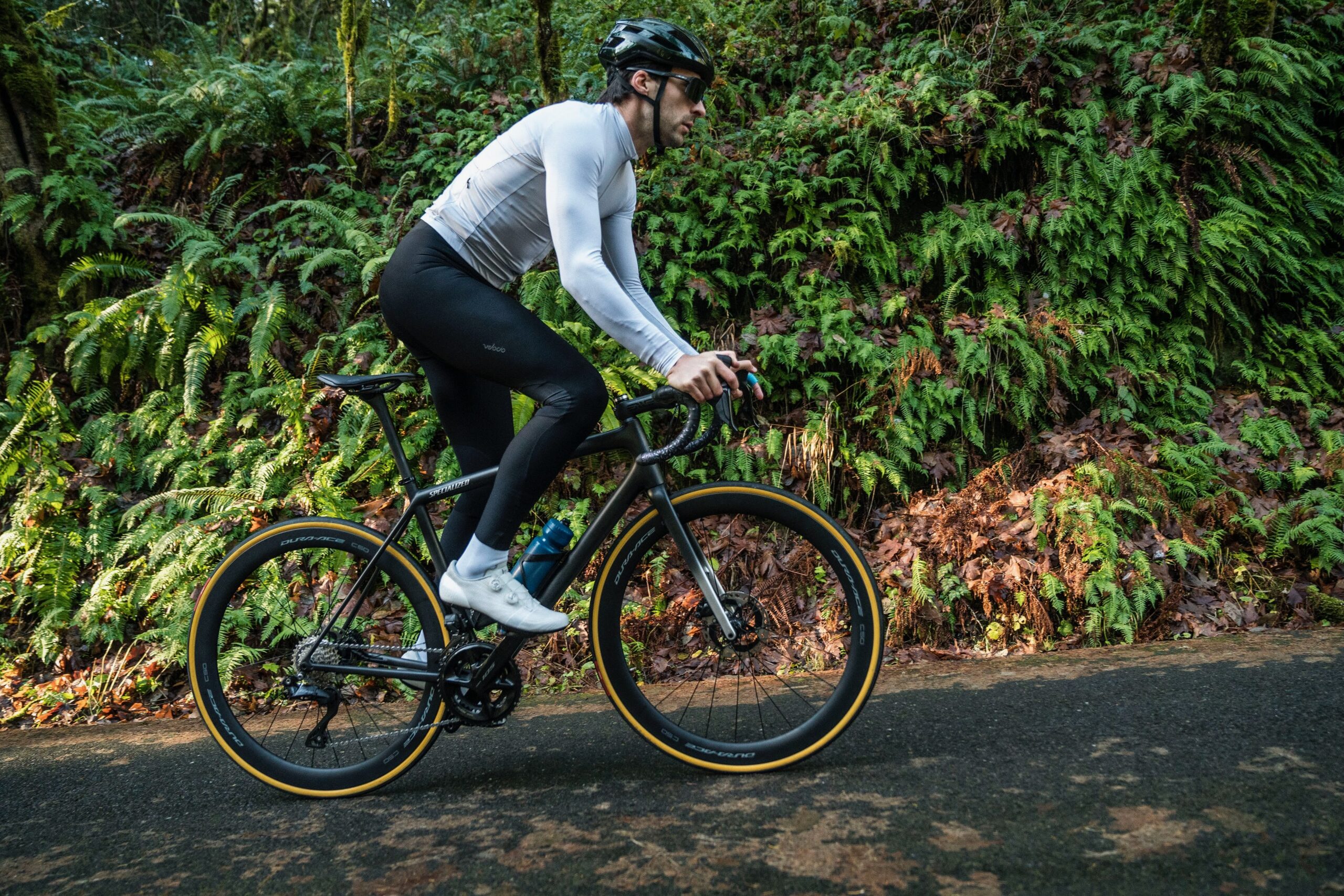
Buying Advice: How to Choose Handlebar Tape
There are literally hundreds of options for handlebar tape on the market. So many options that figuring out what you need can be confusing and downright frustrating. It’s important to consider what you want from a handlebar tape, whether that’s cushioning, a super direct/high feedback feel, wet weather grip, or even a fun and funky style. There are lots of variables to consider in choosing tape, including thickness, surface texture, stretch, color or pattern options, and, of course, cost. And, comfort on the bike doesn’t stop at the handlebar, so it’s important to consider other contact points like a quality saddle, well-fitting bib shorts, and the right pair of road bike shoes too.
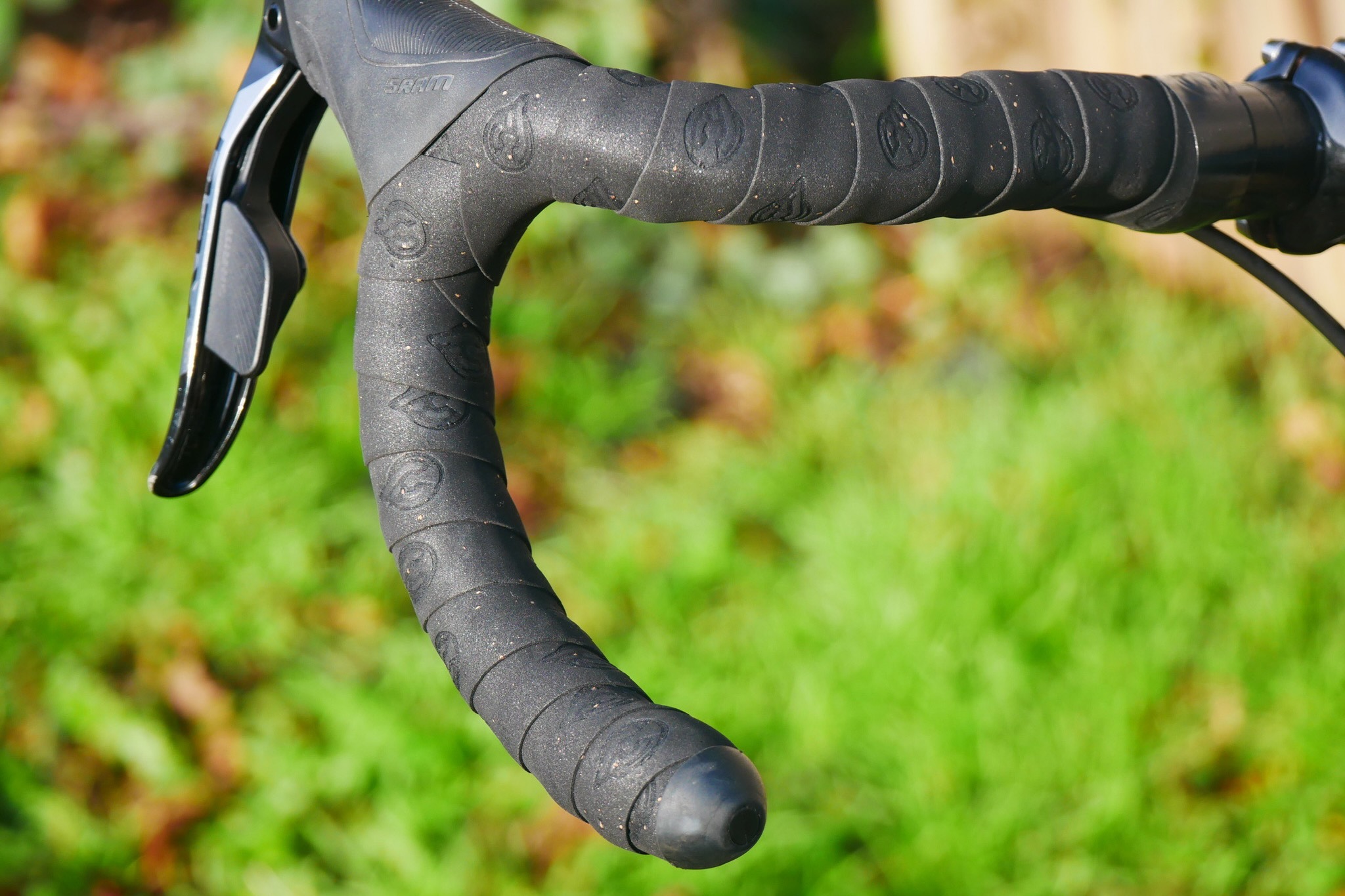
Material/Texture
While handlebar tape comes in rolls and often has sticky backing, “tape” is a bit of a misnomer since we are talking about a multi-layered wrap designed to provide grip and cushioning with only the minimal adhesive properties needed to stay secure once it is tightly wrapped. Traditionally, bar tapes were made of leather, cloth, or simple cork-infused foam. Other options used gel inserts to provide cushioning, but tended to be quite heavy. Like all things in the bike world, handlebar tapes have undergone steady marginal improvements over the years and are now being touted as performance upgrades, with claims of reducing rider fatigue.
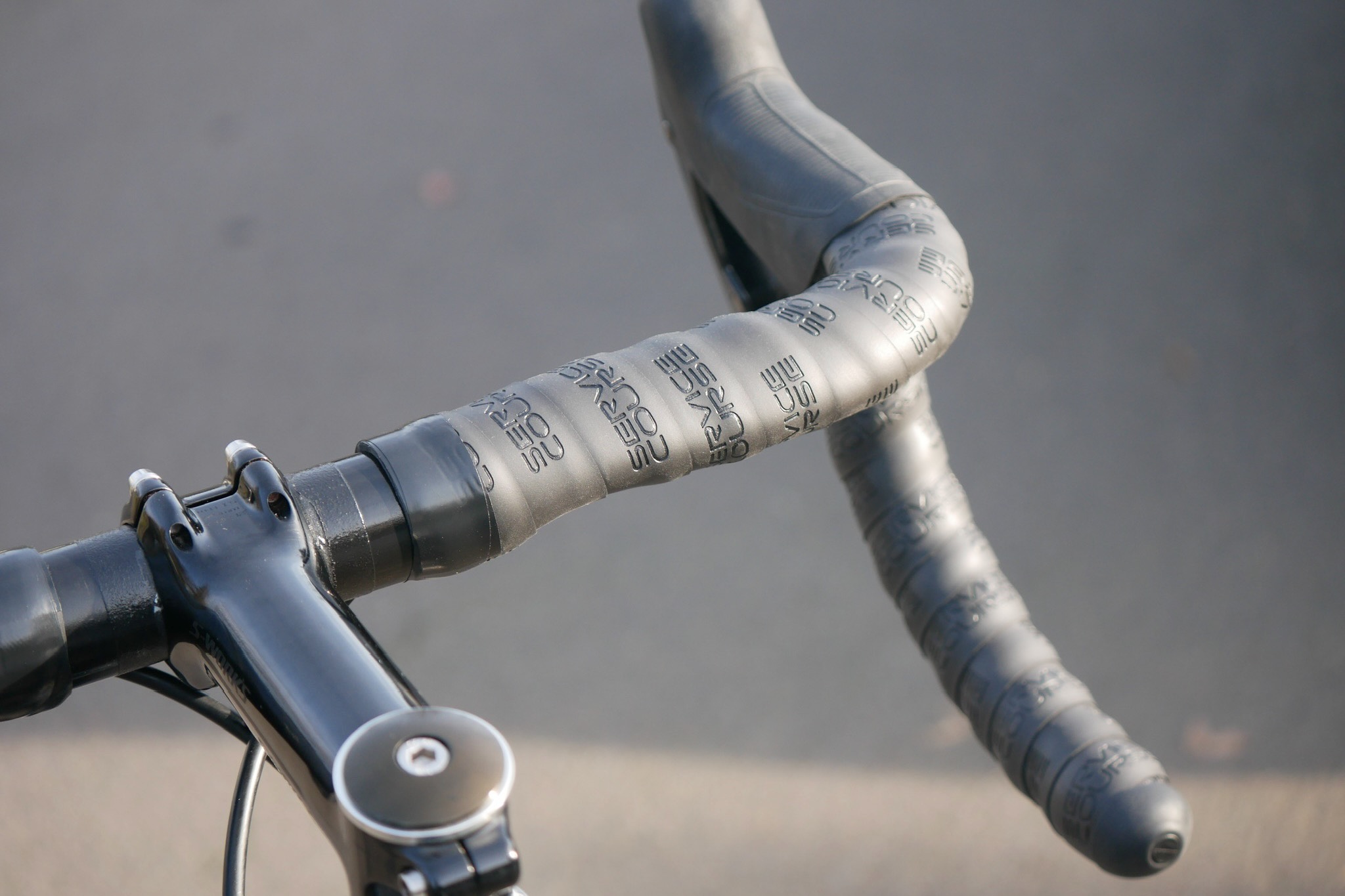
These days, handlebar tapes come in a variety of materials, often consisting of a cushioning layer bonded to a surface layer where the hands make contact with the tape/handlebar, while some still take a simpler approach with a single material throughout. Each tape will have a surface texture inherent to the material, like Microfiber/synthetic leather, polyurethane, or Microtex, or that has been added during the manufacturing process. Different materials, textured or not, provide varying levels of grip or tackiness for gloved or gloveless hands and in wet or dry conditions. Textures can add tactility and grip, and for riders who tend to perspire or who ride in wet conditions, more texture usually can’t hurt.
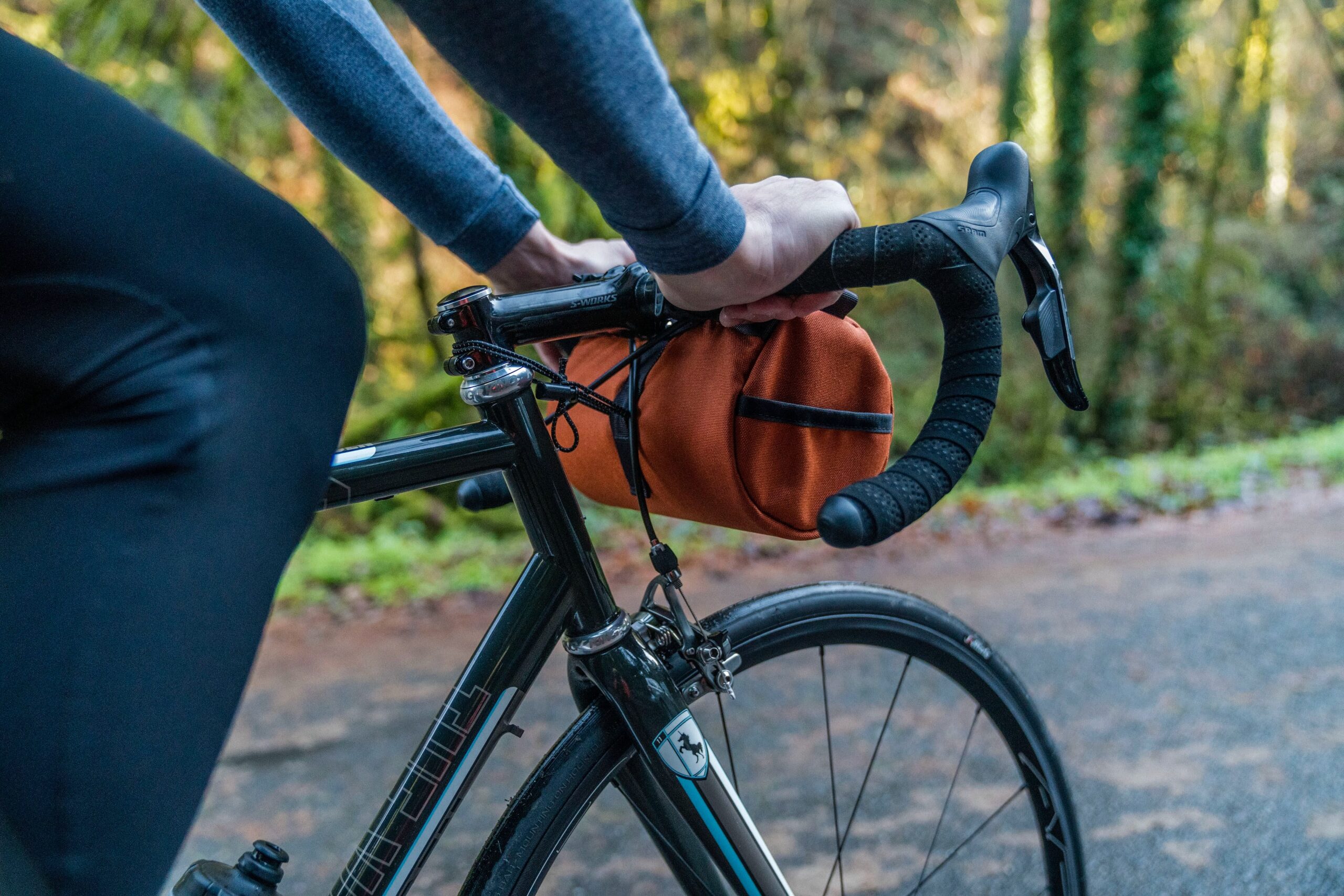
Thickness/Cushioning
Handlebar tapes come in a range of different thicknesses to suit varying needs and preferences. These days, you can find handlebar tapes in thicknesses ranging from around 1.5mm up to roughly 5mm, with the vast majority of tapes falling between around 2mm and 3.5mm. Some tapes are even offered in several thicknesses, like the Lizard Skins DSP, which comes in 1.8mm, 2.5mm, 3.2mm, and 4.6mm, so you can choose which is best for your needs. What works best for you typically depends on the size of your hands, the type of riding you do, the surfaces you encounter, and how much (or little) cushioning you like.
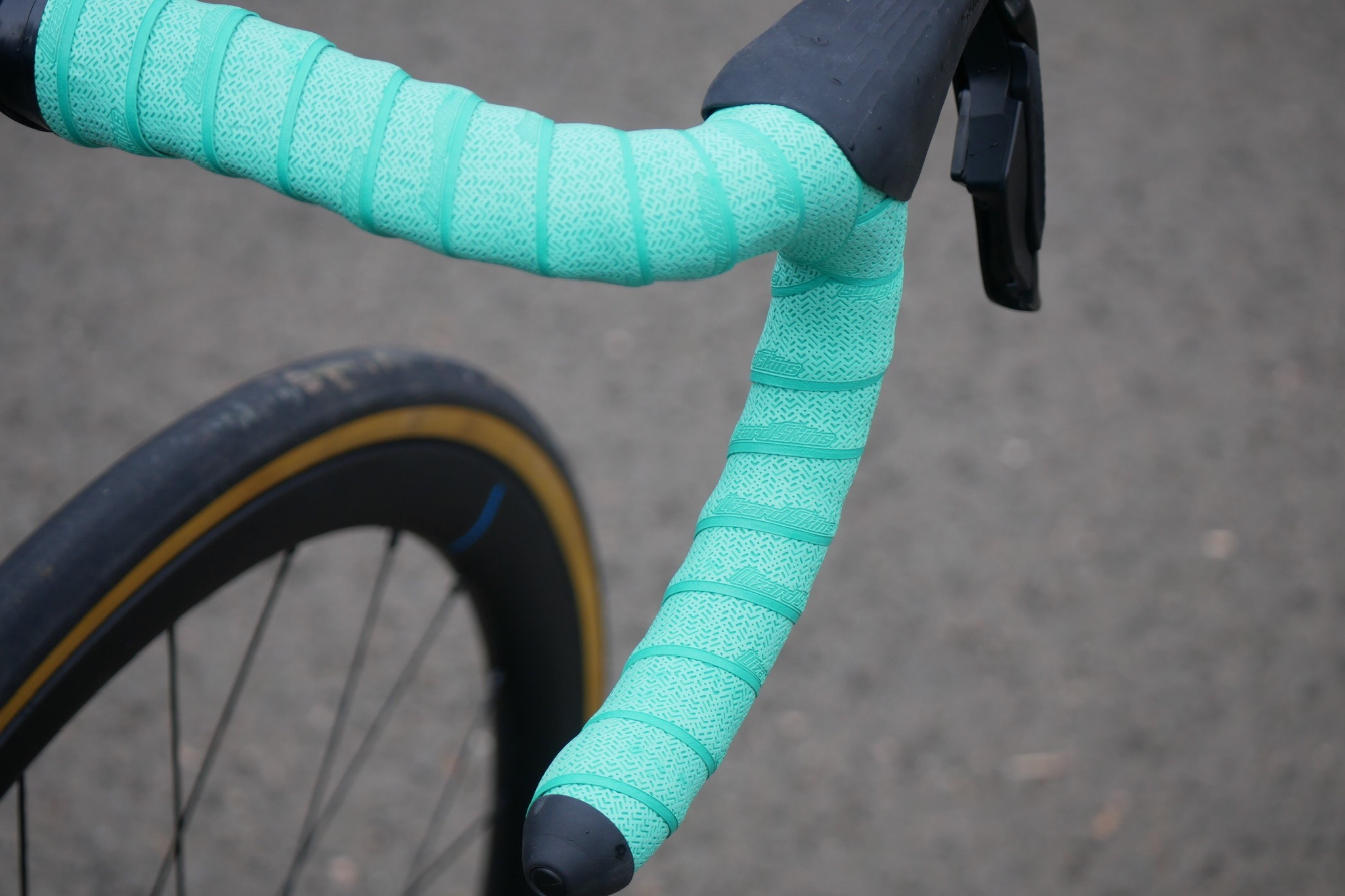
Generally speaking, the thicker the tape, the more cushioning and vibration-dampening it provides. Most tapes have a cushioning layer of foam that is largely responsible for its thickness, and the more there is, the more it can absorb road buzz and vibration over rough surfaces. Of course, thickness isn’t the only determining factor, as the density of said foam also plays a role in its cushioning capabilities. And, given recent advancements in foam technology, modern bar tapes can provide enhanced cushioning without adding excessive thickness, thus offering riders nicely balanced levels of comfort and control with thinner tapes as well.
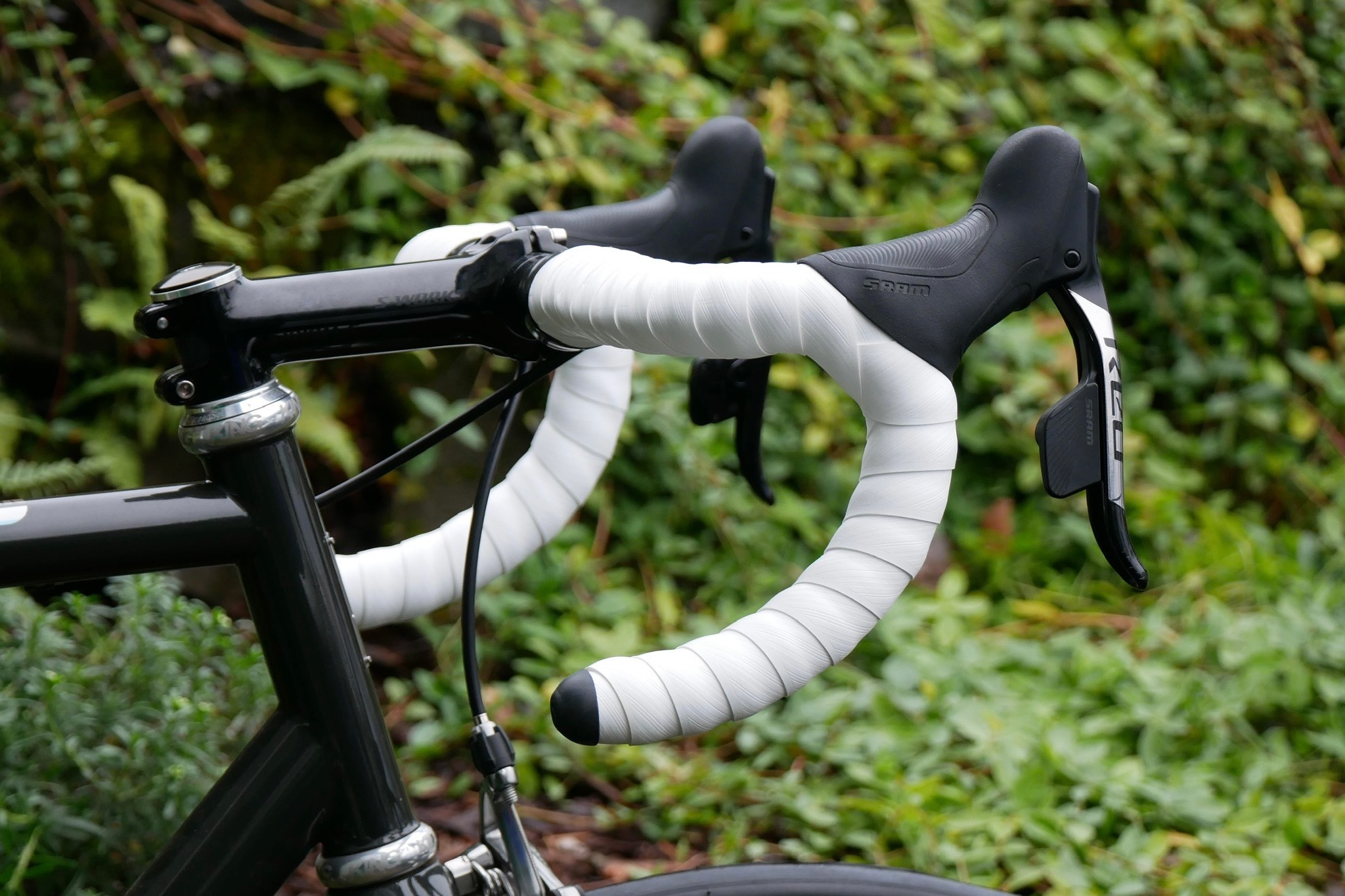
Tape thickness also impacts the effective diameter of the handlebar, making it adaptable for riders with different-sized hands. Riders with larger hands, for example, may prefer the feel and control provided by using a thicker tape that makes the handlebar fit more proportionally in their hands. Likewise, riders with smaller hands may find that a thinner tape helps them grip the handlebar and therefore control the front end of the bike a bit more easily. This mostly comes down to rider preference.
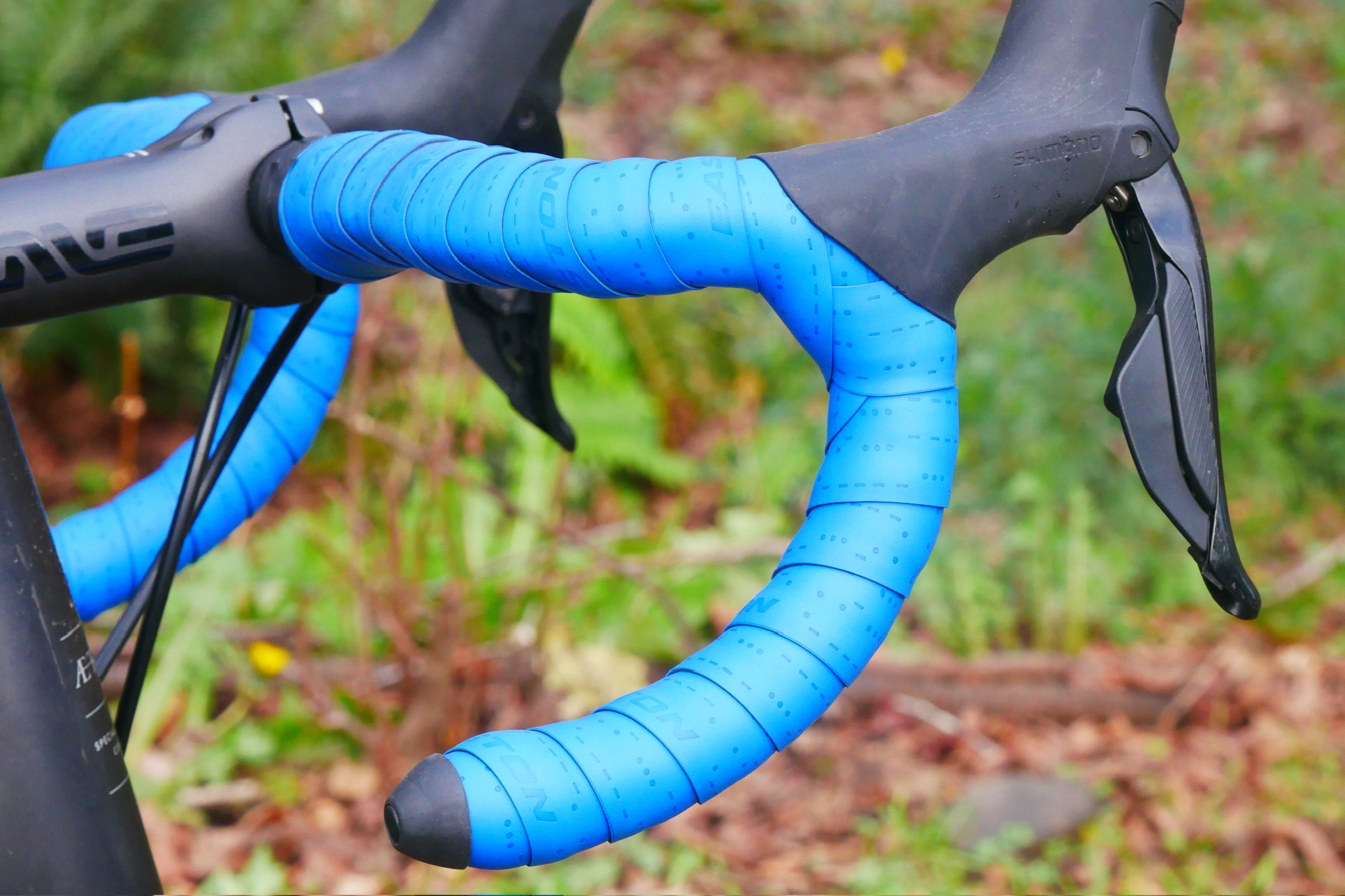
Stretch
Handlebar tapes have varying levels of stretch, depending mostly on the materials and construction. Tapes with more stretch are typically a bit more forgiving during the wrapping process and make it a bit easier to get around tight bends and the hoods, whereas tapes with little to no stretch require a bit more care to wrap perfectly. Additionally, one can also alter the thickness and/or cushiness of a stretchy tape depending on how tightly you wrap it. The tighter you pull it, the thinner and less cushy it becomes, and vice versa.
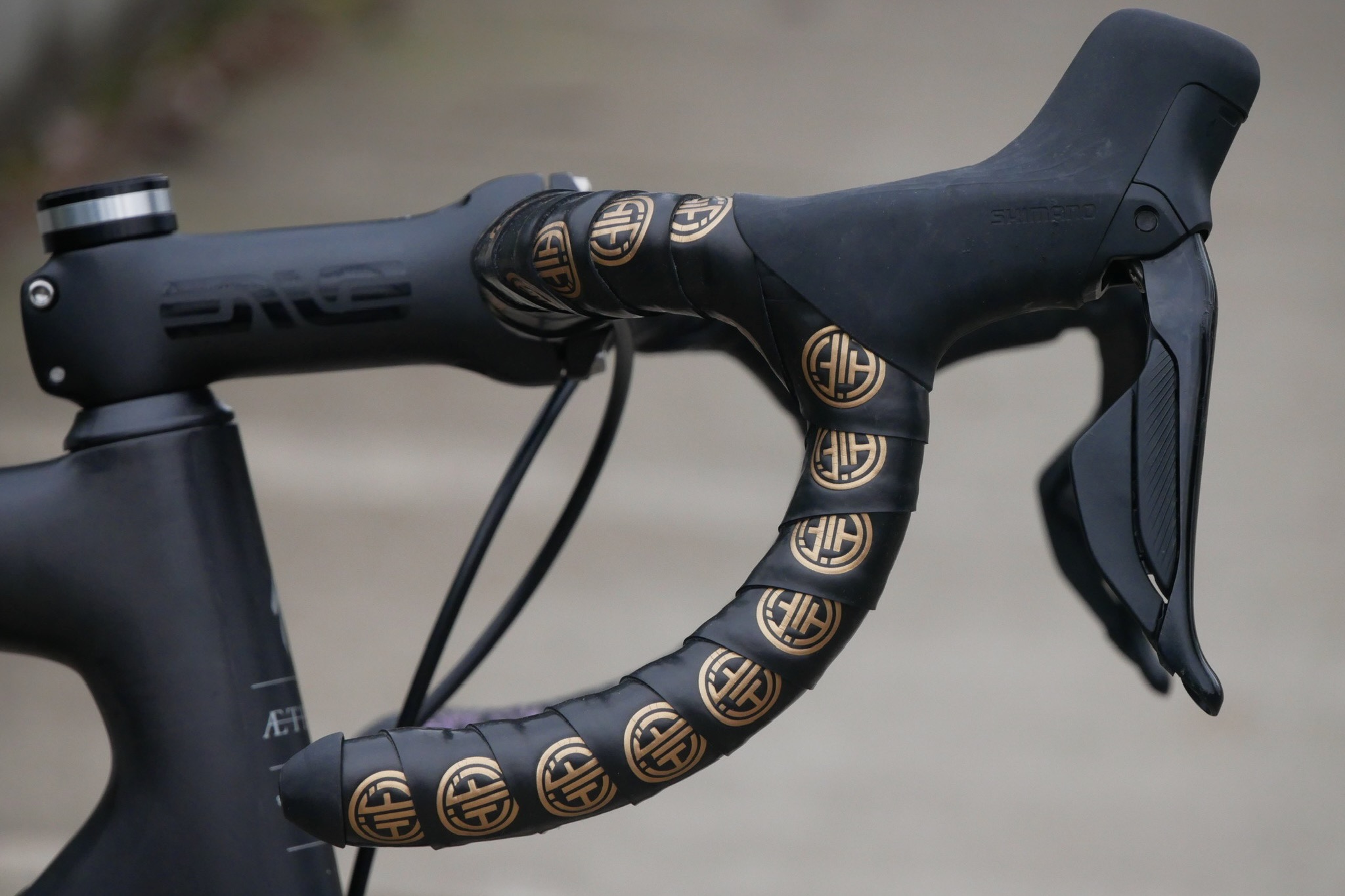
Style: Colors and Patterns
Your handlebar tape is one of the most cost-effective ways to express your personal style on your bike. Whether you’re looking for something subdued and classy or bright and flashy, there are options to suit virtually every taste and match any build. Some tapes come in only a few color options, while others come in a vast array of colors and/or patterns to choose from. While we wouldn’t necessarily recommend choosing a handlebar tape based solely on the color, you should be able to find something that meets both your performance needs and style, too.
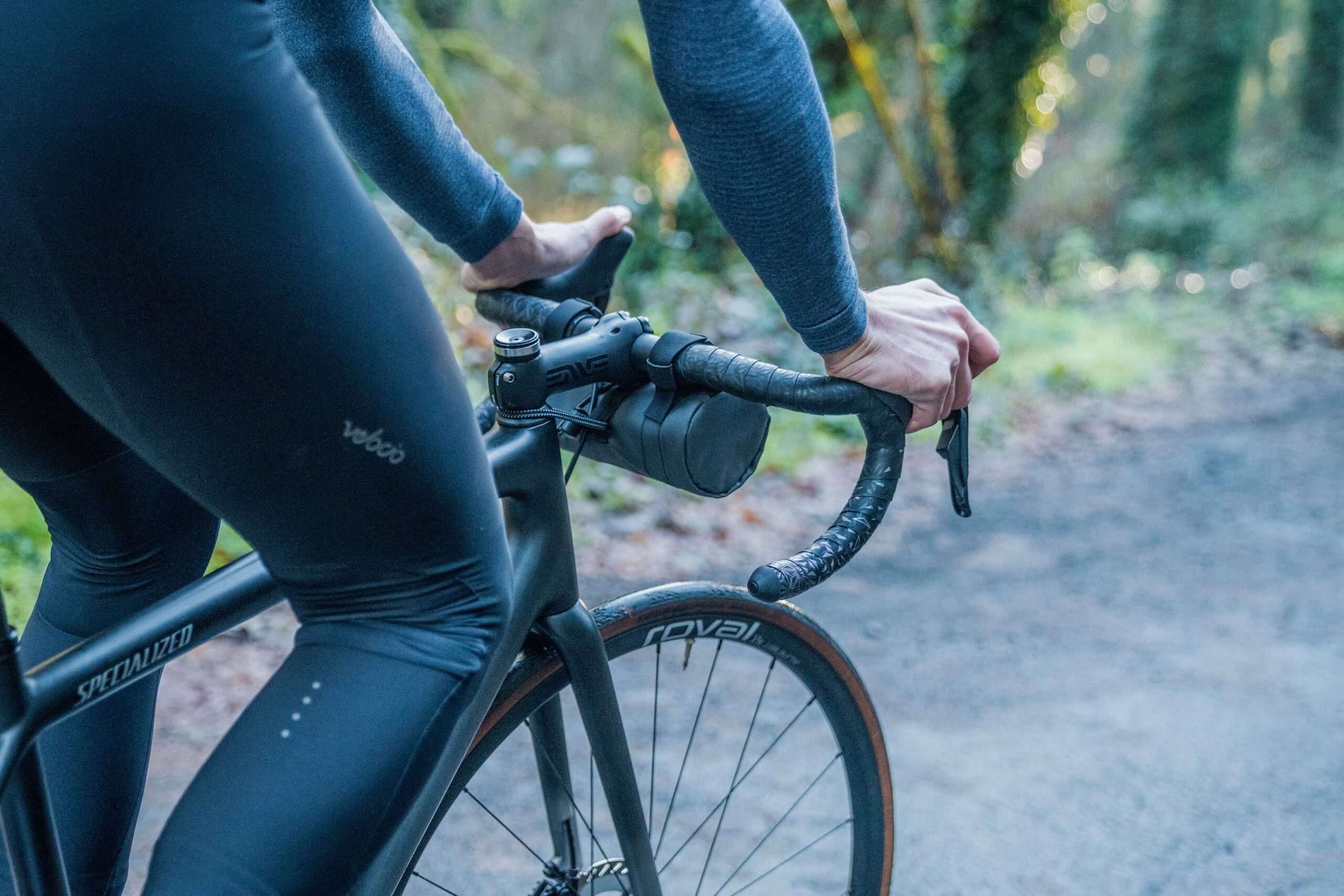
Value
Bar tapes have increased significantly in cost recently, with most rolls costing over $30 and some upwards of $50. Tapes at the more expensive end of the spectrum, like the Supacaz, Silca Nastro Cuscino, and Lizard Sins DSP, typically will provide low weight and bulk, supreme comfort, and hard-wearing durability. Mid-price point tapes can also provide all three of these, but often lack in one of these areas. The least expensive tapes, like Cinelli Cork Ribbon, can perform well but may degrade faster, either by tearing, compressing, or losing stickiness due to surface erosion, but they are affordable to replace. Of course, regularly cleaning most tapes with mild soap and water will greatly extend their lifespan and usability. Depending on how much you ride, it’s reasonable to expect to get a full season, or possibly several, out of your handlebar tape, even with less expensive options.
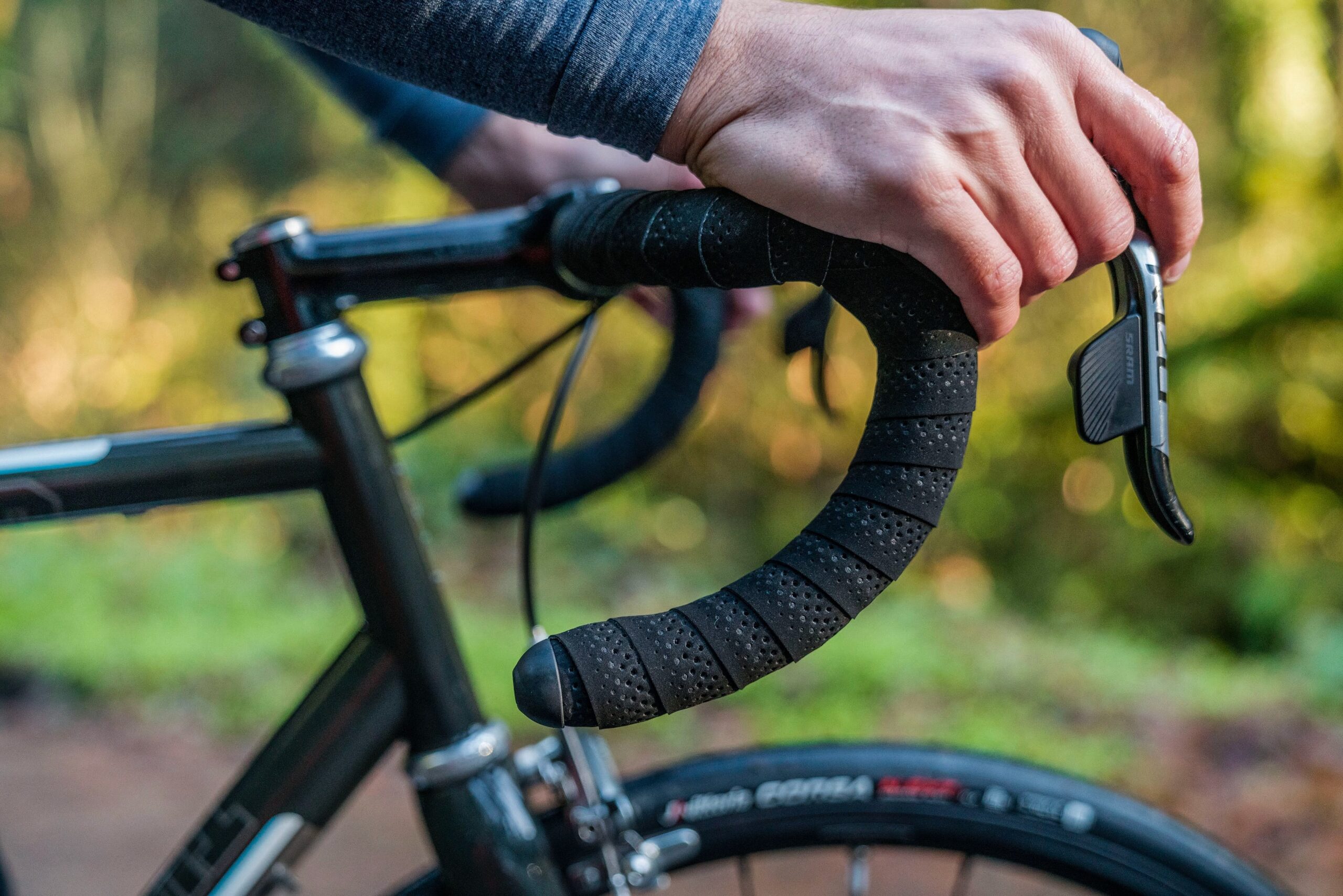
Frequently Asked Questions
Finding the perfect tape is a matter of personal preference and it should meet your performance demands. There isn’t really any single handlebar tape that will be the perfect option for every single rider. Consider what you want from your handlebar tape and factors like material, thickness, cushioning, price, and even color, and you should be able to narrow down the options to find a good choice.
Any of the handlebar tapes we tested can be used on gravel bikes, or any bike with a drop bar for that matter. Generally speaking, however, many gravel riders will opt for tapes that provide a good level of cushioning to take the edge off of the impacts and high-frequency vibrations experienced on gravel roads. One of our favorite tapes for gravel riding is the 3.5 mm thick Ergon BT Gravel tape. Again, whether you’re riding pavement, gravel, or both, the right tape generally comes down to balancing your personal preferences for comfort and control.
Riders typically choose the thickness of their bar tape based on personal preference. As mentioned above, you can change the effective diameter of your handlebar with different thicknesses of bar tape to get a more proportional fit for the size of your hands. The feel of the bars is another factor that influences this choice as some riders want the super precise feel that a thinner tape can provide, while others may prefer the enhanced comfort that a thicker tape offers. We typically gravitate toward handlebar tapes that provide the best balance of control, grip, and cushioning, and these tend to be in the 2.5mm to 3mm thick range.
With prices of the models we tested ranging from $20 to $50, bar tape is one of the least expensive things you can buy in cycling, but it’s fair to wonder what makes some tapes so much more expensive than others. The least expensive handlebar tapes, like the Cinelli Cork Ribbon, for example, have the simplest material and construction, so it stands to reason that a basic roll of cork/foam costs less. As materials and constructions get more advanced, however, the price goes up as well. Once you start bonding layers together and adding embossed, textured patterns and logos, it makes sense that some tapes are a bit more expensive. In our testing, we’ve also found that the more expensive options tend to provide the highest level of performance. These higher-end tapes also seem to be a bit more durable in our experience, making the price a little easier to justify.
Wrapping your handlebars is among the easier tasks in cycling, but if you’ve never done it before, it can be a little tricky. If you’re not the DIY type, that’s okay too, your local bike shop will be happy to take care of it for you. If you are willing to take it upon yourself, there are lots of helpful articles and videos online that explain it well and show you how it’s done. It would take a separate short article to explain how to do it properly, so we’ll skip the quick and dirty explanation here and hopefully bring you a “how-to” article in the near future.
Like any consumable part on a bike, your handlebar tape will wear out eventually and needs to be replaced. The rate at which this happens varies depending on how much you ride, the conditions you ride in, and how well you maintain your tape. Fortunately, it’s fairly inexpensive compared to other bike parts, so keeping your bike’s handlebar looking and feeling fresh is relatively easy on the wallet. Over time, the foam can get compressed and the tape surface degrades from friction and sweat. A crash or even your bike tipping over can also cause premature damage to your handlebar tape. Signs that your handlebar tape has reached the end of its usable lifespan include rips, tears, abrasion, or the edges of the tape curling. If your cushy tape no longer feels cushy or you notice the texture of your tape is worn away or the grip is reduced, those are also indicators of worn-out tape. Some tapes may also get loose as they stretch out over time, a sure sign that it’s ready for fresh wrap.
If you’ve ever ridden with white or lightly colored handlebar tape, then you know it gets dirty pretty quickly. Since it’s in constant contact with our hands, gloved or not, it takes a fair amount of abuse in the form of friction, sweat, dust, rain, and road spray. Taking a little time to clean your handlebar tape every once in a while can not only help keep it looking fresh but also help to extend its lifespan. Removing the buildup of sweat and road grime also makes it feel nicer on the hands. Most tapes, especially those with smooth or less porous surfaces, can be wiped clean fairly easily with mild soap and water and a towel. Tapes that are less smooth and more absorbent, like cork, aren’t as easy to wipe off, but they can be sprayed off and patted dry with a towel to help remove sweat stains and the associated salts.
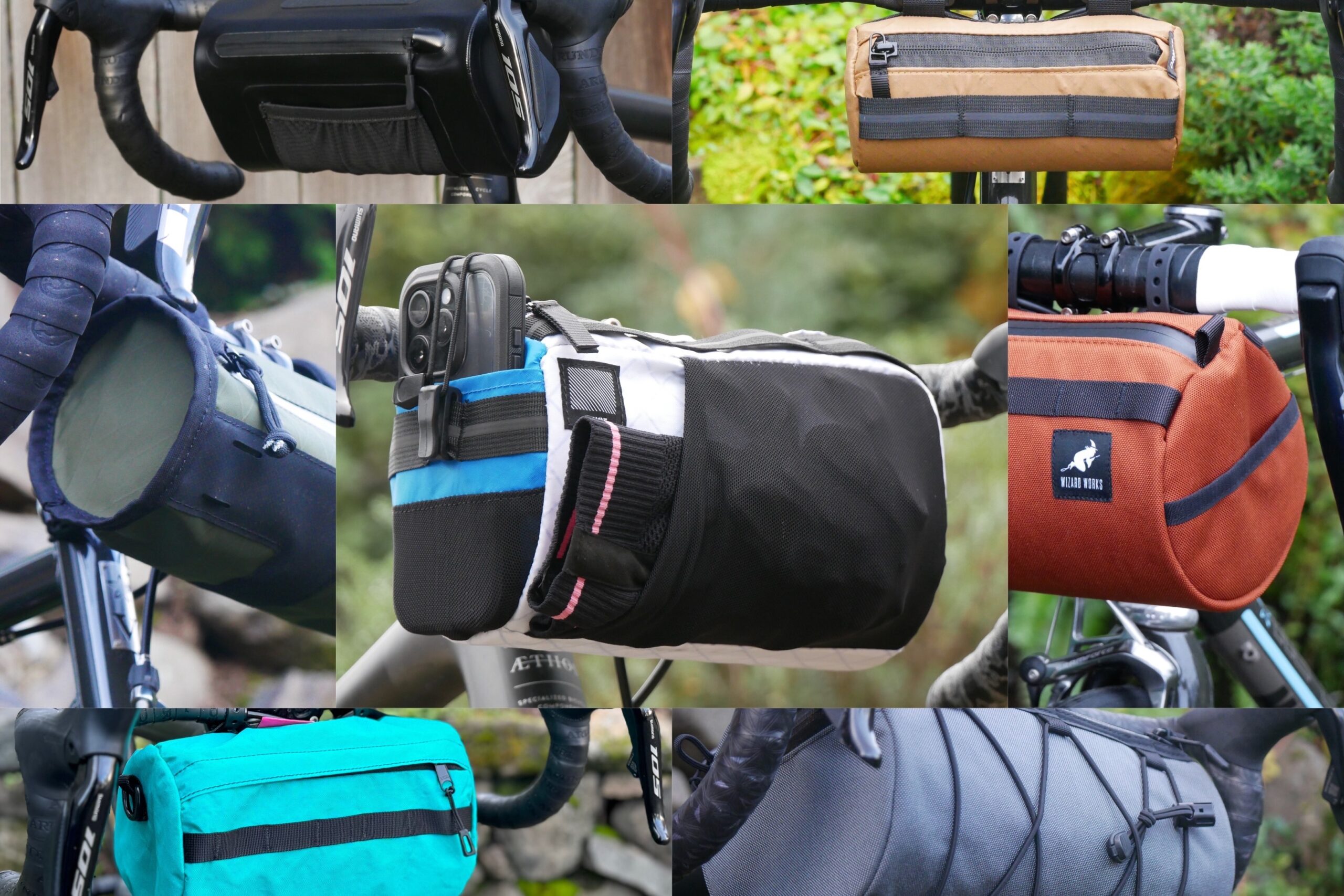
The Best Bike Handlebar Bags of 2025
Handlebar bags are a simple and effective way to add storage to your bike while keeping your essentials within arm’s reach. Whether you’re simply looking…
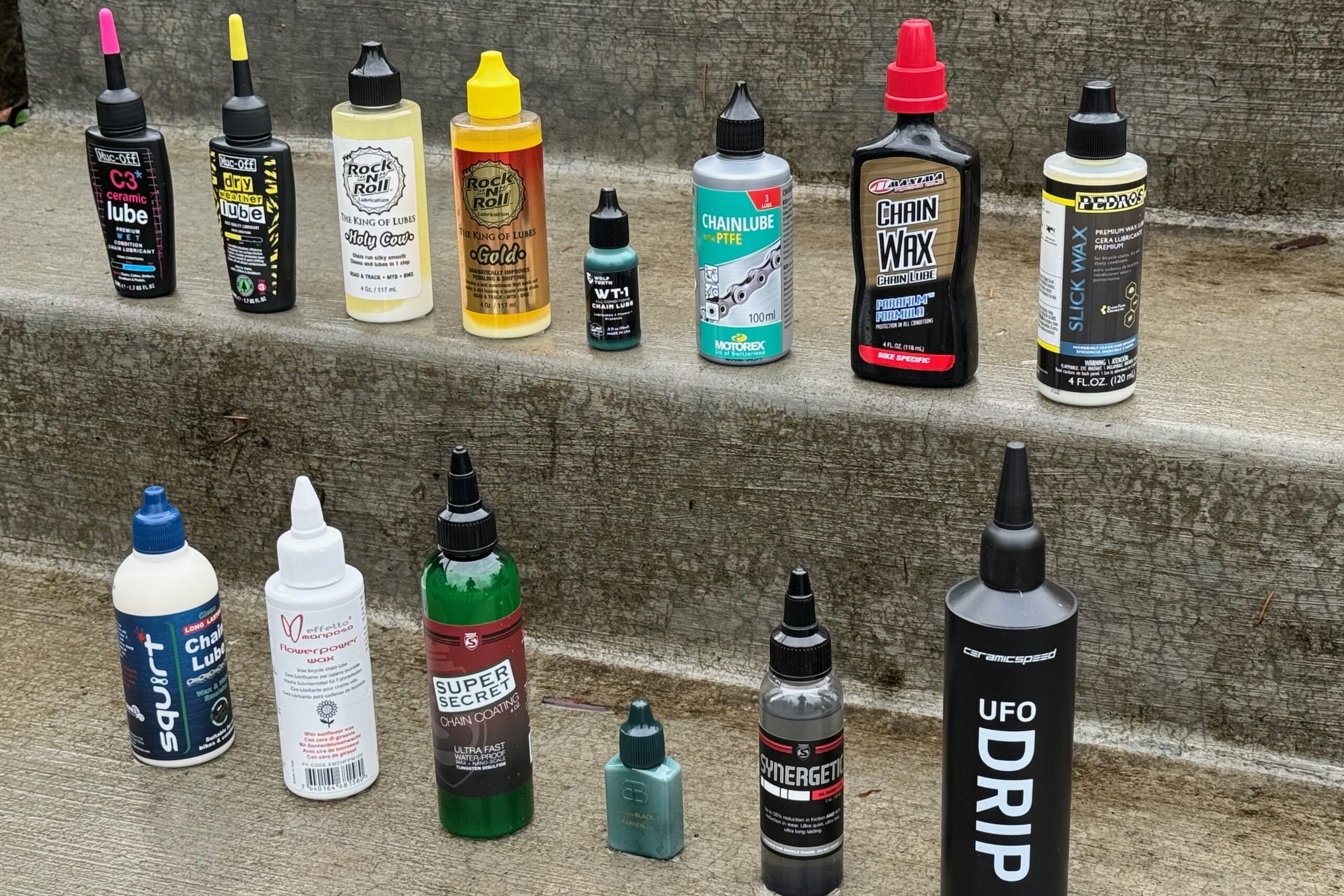
The Best Bike Chain Lubes of 2026
We tested 16 of the best bike chain lubes on the market to help you keep your bike running smoothly and quietly and extend the life of your drivetrain.
